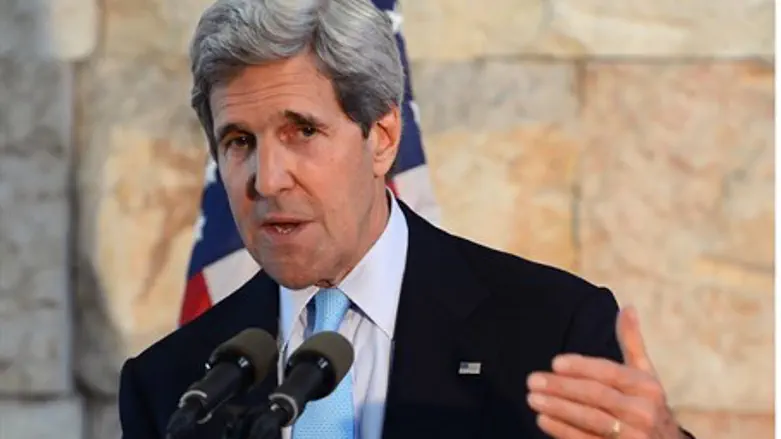
US Secretary of State John Kerry on Monday said Iran had backed out of the deal offered to it during the nuclear talks in Geneva last weekend. Kerry's comment will be seen by some as being intended to deflect criticism of the bad deal he supposedly offered Iran.
Kerry, who spoke during a visit to the United Arab Emirates, said "the P5+1 (6 world powers negotiating with Iran) was unified on Saturday when we presented our proposal to the Iranians... But Iran couldn't take it, at that particular moment they weren't able to accept."
The talks ended Saturday, to be restarted in Geneva again November 20.
Kerry's assessment of Iranian responsibility conflicts with Iranian accusations that French Foreign Minister Laurent Fabius blocked the deal. Indeed Republican lawmakers in the US, foremost among them Senator John McCain, on Sunday praised France for preventing a bad deal with Iran.
Kerry's statement that the negotiating delegations presented a unified proposal also conflicts with Fabius's comment on Saturday when he said "there is an initial draft that we do not accept... As we speak, I have no certainty that we can finish up."
Some speculate that Kerry's shifting of the blame onto Iran is designed to deflect criticism of the US, which is seen as rushing to seal a deal with Iran and in doing so turning its back on the security interests of its allies Israel and Saudi Arabia.
In regards to Israel, Kerry further stated that the Iran nuclear talks will help protect Israel "more effectively," according to AFP.
This comment is also seen as being intended to deflect heavy criticism from Prime Minister Binyamin Netanyahu, who claimed the proposed deals ease sanctions on Iran while demanding nothing meaningful from the regime.
Meanwhile Economics Minister and Bayit Yehudi (Jewish Home) Chairman Naftali Bennett on Sunday revealed plans to lobby the American Congress to prevent a deal in the next round of talks with Iran.